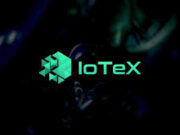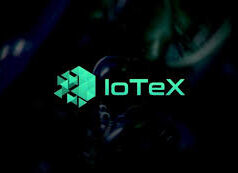Hey there, fellow science enthusiasts! Imagine a world where decoding cancer isn’t just a solitary effort in a secluded lab but a global collaboration powered by blockchain and artificial intelligence. Sounds futuristic? It’s not—it’s happening right now, thanks to Crunch Lab’s decentralized AI network.
This isn’t just another tech buzz. It’s a transformative development already making waves at the Broad Institute of MIT and Harvard, one of the world’s most respected biomedical research centers. Together, these innovators are reshaping how cancer gene research and therapy modeling happen. And the result? A faster, more secure, and more collaborative fight against one of humanity’s toughest challenges.
Let’s dive deep into how Crunch Lab’s decentralized AI works, why it’s revolutionizing medical research, and how its partnership with the Broad Institute is propelling breakthroughs in genomics and cancer treatment.
Unpacking the Technology: What Makes Crunch Lab’s Network Different?
At its core, Crunch Lab—the team behind CrunchDAO—has created a decentralized, blockchain-powered AI network that operates like a crowdsourced supercomputer for machine learning. Rather than a single corporation controlling data and compute resources, Crunch enables a global network of over 7,000 data scientists, PhDs, and engineers across 100+ countries to collaborate securely and anonymously.
This setup functions like an “Uber for AI models.” Instead of centralized teams, independent researchers—nicknamed “crunchers”—compete in encrypted AI challenges to create predictive tools. The winners earn cryptocurrency rewards, while all participants contribute to a shared “intelligence layer” that can be integrated by enterprises or research institutions.
As Business Insider reports, this incentive-based system relies on blockchain to ensure transparency, security, and equitable participation. Challenges are encrypted, privacy-preserving, and reward-driven—ensuring that sensitive data, especially in fields like healthcare, remains completely secure.
Crunch Lab’s rise has been strategic and steady. After joining the Solana Incubator in early 2025, the company scaled rapidly and secured $10 million in funding from firms such as Galaxy Ventures and Multicoin Capital, according to Cointelegraph. This funding fueled their mission to build an “institutional intelligence layer,” enabling organizations like the Broad Institute to turn complex medical forecasting into decentralized competitions.
This model doesn’t just lower costs and accelerate innovation—it democratizes AI, allowing smaller labs and researchers worldwide to contribute meaningfully without massive infrastructure investments.
Why Cancer Research Needs Decentralized AI
Cancer remains one of the most complex diseases known to science. Tumors evolve rapidly, and the data needed to understand them—from genomic sequencing to protein analysis—is immense. Traditional centralized AI systems often struggle due to data silos, ethical restrictions, and computational costs.
Crunch Lab’s model flips the script. By decentralizing AI development, researchers can leverage global intelligence while keeping sensitive genomic and patient data private. This is exactly what makes the Broad Institute a natural partner.
Spotlight on the Broad Institute: A Genomic Powerhouse
The Broad Institute of MIT and Harvard is one of the world’s leading centers for biomedical innovation. Founded in 2004, it brings together more than 3,000 scientists from across disciplines—genomics, data science, chemistry, and more—to pursue new ways to understand and treat disease.
Its Cancer Program is legendary. The Broad has produced groundbreaking work in mapping tumor genomes, developing CRISPR-based therapies, and advancing AI-driven drug discovery (Broad Institute, 2025).
Projects like the Cancer Cell Line Encyclopedia (CCLE) and DepMap have revolutionized how scientists study tumor vulnerabilities (Cancer Data Science). Yet, despite its resources, even the Broad faces the challenge of processing the petabytes of data generated from high-resolution genomic studies.
That’s where Crunch Lab’s decentralized AI enters the picture.
The Dynamic Duo: Crunch Lab Meets the Broad
The partnership between Crunch Lab and the Broad Institute began with the Autoimmune Disease ML Challenge, organized in collaboration with the Eric and Wendy Schmidt Center and the Klarman Cell Observatory (Blockonomi, 2025). The success of that event paved the way for something much larger: integrating Crunch’s network into cancer-specific gene research and therapy modeling.
Broad scientists now use the decentralized AI network to analyze massive genomic datasets without moving data off secure servers. This allows them to identify cancer-driving mutations, simulate therapeutic responses, and predict the success of gene therapy vectors—all in a privacy-preserving, encrypted environment.
One key focus has been improving AAV (adeno-associated virus) delivery systems used in gene therapies. Traditional methods rely on trial and error. Crunch’s network, however, crowdsources predictive AI models that forecast AAV efficiency across different tissue types. The result? Faster, more precise viral vector design (Broad Institute, 2025).
In one recent challenge, crunchers created models that outperformed in-house algorithms, uncovering previously unseen gene expression patterns that may lead to new immunotherapy targets (MIT News, 2025).
Inside the Breakthroughs: Real-World Wins
The results are already turning heads. Using decentralized machine learning, Broad researchers mapped oncogenic pathways in lung cancer, processing over 10,000 patient genomes in record time. The AI models pinpointed mutations in the EGFR gene that evade common treatments, paving the way for combination therapies (Broad Institute, 2025).
In another collaboration, the Ben Deverman Lab leveraged Crunch’s decentralized model competitions to optimize AAV delivery systems, achieving a 25% improvement in prediction accuracy for targeted gene therapies. This advancement shortens the timeline for clinical trials, potentially leading to personalized cancer therapies faster than ever before (Cointelegraph, 2025).
Furthermore, Broad scientists are using Crunch’s platform for federated learning setups, allowing multiple institutions to collaborate on AI models without sharing raw data—an approach especially critical for rare cancer research (Stanford Medicine).
These use cases demonstrate how decentralized AI can accelerate discovery while preserving privacy and compliance with HIPAA and other data-protection regulations.
Challenges on the Road: The Honest Truth
While the synergy between decentralized AI and medical research is promising, challenges persist. Regulatory approval from bodies like the FDA requires extensive validation. Data quality can vary across global contributors, and although Crunch employs homomorphic encryption for privacy, emerging quantum threats could eventually test these systems.
Ethical concerns also arise around data ownership and token incentives. Who gets credit when a decentralized model leads to a breakthrough? Crunch Lab is addressing this through transparent tokenomics and open-access pilots that ensure equitable recognition for contributors across the globe (Blockonomi, 2025).
Still, the advantages far outweigh the risks. The model dramatically cuts compute costs, reduces analysis time, and increases diversity in AI modeling—bringing together voices and perspectives from every continent. As one Broad researcher put it, “It’s like having a thousand postdocs on demand.”
Charting the Future: Where This Could Lead
Looking ahead, the Crunch-Broad collaboration could reshape AI-powered medicine as we know it. By expanding into multi-omics integration—linking genomics, proteomics, and metabolomics—researchers could design hyper-personalized cancer therapies in a fraction of the time.
Decentralized AI networks like Crunch’s could soon become standard in pharmaceutical development, cutting drug discovery timelines by years, and ensuring transparency, security, and collaboration across borders. Future partnerships with organizations such as ADIA Lab and Count Me In could extend these benefits to global initiatives, from pandemic response to genetic disease prevention (PMC).
As of October 2025, Crunch Lab’s momentum—and Broad’s unmatched expertise—signal a turning point for medical AI.
Final Thoughts: A New Era of Collaborative Science
Crunch Lab’s decentralized AI network isn’t just a new piece of technology—it’s a revolutionary framework for human collaboration. By uniting thousands of independent minds to tackle one of medicine’s toughest challenges, it’s proving that decentralized systems can deliver faster, fairer, and more impactful results.
Cancer research is notoriously difficult and data-intensive. But with the Broad Institute’s scientific brilliance and Crunch’s decentralized intelligence engine, we’re entering a future where AI doesn’t just assist in discovery—it accelerates it.
As the world continues to watch this partnership unfold, one thing is clear: the next great leap in cancer therapy may not come from a single lab—it may come from the collective intelligence of thousands, connected through code.
So, what’s your take on decentralized AI’s role in medicine? Join the conversation, explore the research, and support open collaboration—because in the fight against cancer, every shared insight counts.
Sources and References:
- Business Insider
- Cointelegraph
- Broad Institute of MIT and Harvard
- Blockonomi
- Cancer Data Science
- Cancer Research
- MIT News
- Stanford Medicine
- PMC – National Library of Medicine



























